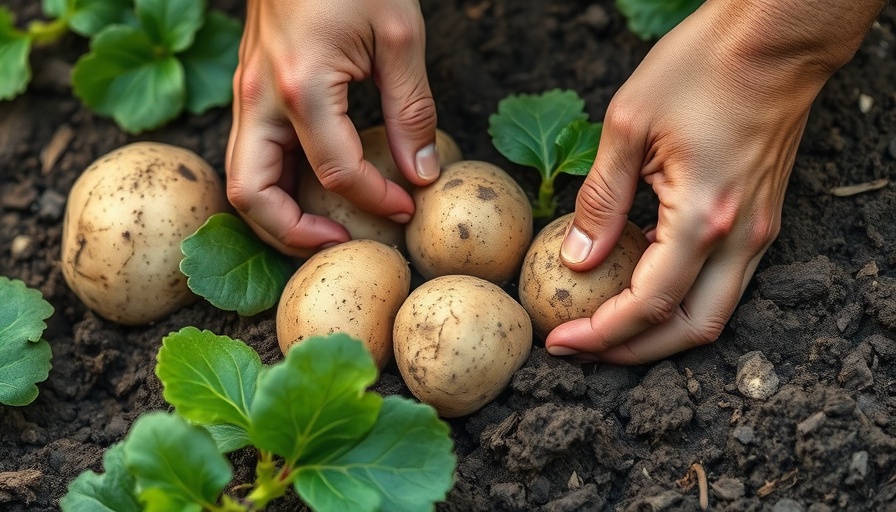
How Belgium's Early Potatoes Are Shaping the Agrarian Landscape
In recent developments, Belgian researchers have reported concerning trends regarding the yield of early potatoes, specifically the Amora variety. After the first test harvesting, it was revealed that the yields are falling below the five-year average, a situation aggravated by inadequate irrigation practices. For agrarians, these insights not only highlight agronomic challenges but also signal economic implications as the agricultural sector grapples with changing climate conditions.
The Impact of Water Management on Yield
Soaring temperatures and insufficient rainfall have made irrigation a crucial factor in determining the success of this year’s potato crop. According to Viaverda and Inagro, limiting water supply has resulted in decreased tuber counts per plant. Fields without irrigation are underperforming significantly, with average yields pushing only 28 tons per hectare, compared to 41 tons for irrigated plots. This disparity underscores the urgent need for effective water management strategies in Belgian agriculture.
Understanding Recent Yield Trends
Data from the latest tests showcases a worrying trend. The average harvest of Amora potatoes stands at 34 tons per hectare against last year's five-year average of around 37 tons. Interestingly, the earlier planting date in March may have contributed to lower growth rates, as rising temperatures can disrupt optimal growing conditions if accompanied by water scarcity. This could prompt farmers to reassess their planting schedules and the varieties they choose.
Quality vs. Quantity: What Matters More?
While quantitative yields are declining, the quality of the harvested potatoes shows promise. Researchers have noted high quality for fries-grade potatoes, with nearly 89% of irrigated tubers meeting size requirements of 50mm or more. This creates an intriguing balance between yield expectations and product quality, possibly indicating a future trend where quality becomes a focal point over sheer volume, especially in a competitive market.
Insights on Future Growth and Opportunities
As the climate continues to shift, Belgian farmers must adapt. The fluctuating yields of early potatoes serve as both a warning and a call for innovation. Exploring varieties that possess greater drought resistance or investing in more sustainable irrigation technologies could emerge as the next step for agrarians keen on maintaining their productivity and profitability.
Time to Take Action
For agrarians in Belgium, the realities of their potato yield challenges call for immediate adjustments in farming practices. Adopting more resilient potato varieties and enhancing irrigation can mitigate risks associated with droughts. The statistics reveal not just a growing concern but also a unique opportunity to redefine potato farming in Belgium.
 Rij toevoegen
Rij toevoegen






Write A Comment